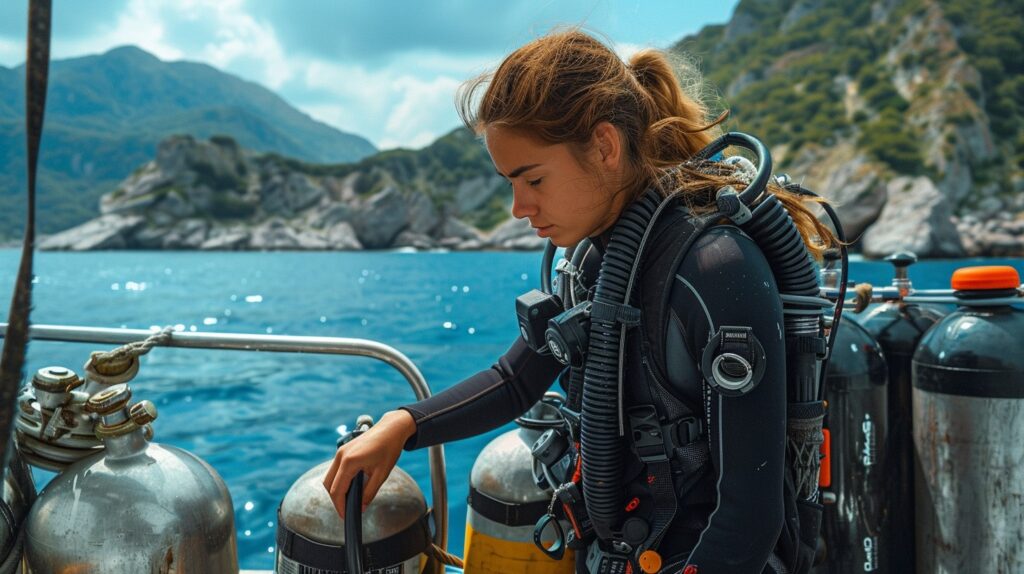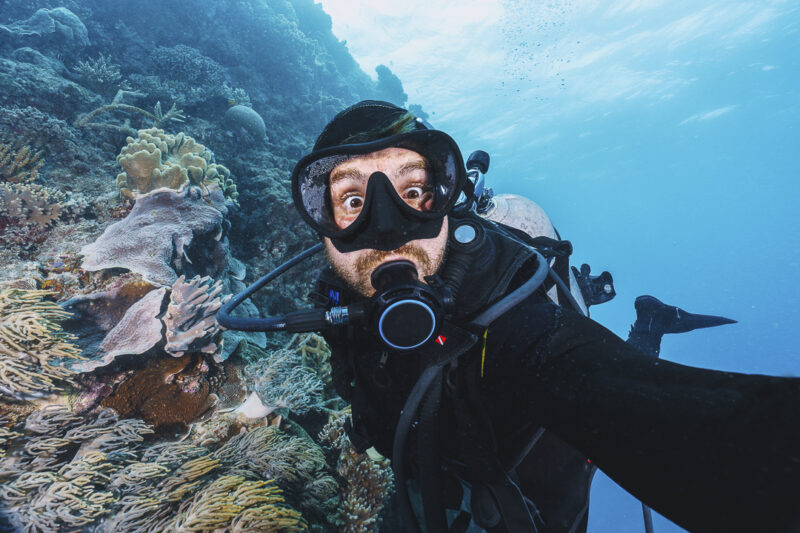Not long ago, one of our guests found himself in an unexpected and unfortunate situation. He was a relatively new diver with no dive insurance. He had done about 10 dives since being certified as a PADI Open Water diver the year prior. He was only with us for the day so he was excited to get in the water. His first dive was unremarkable. After a 1 hours surface interval, he and his group went in for the second dive. After finishing his dive he did a 3 minute safety stop and made it to surface without incident. At the surface he soon became unconscious. The boat crew and dive guide pulled him aboard and immediately gave him oxygen. The symptoms soon escalated, and it was clear he was experiencing neurological decompression sickness (DCS). He was rushed to the hospital by ambulance. Without scuba dive insurance, he faced not only the stress of his condition but also four days in a hospital undergoing hyperbaric treatments. The costs quickly piled up, reaching thousands of dollars. All these expenses could have been avoided with dive insurance.
His story is a stark reminder of the risks associated with diving—even if you’ve had several successful dives—and why having dive insurance is so important. Even one or two dives can result in complications, making the safety net of scuba diving insurance essential for any diver.
Trip Insurance vs. Dive Insurance
When planning a dive trip, it’s essential to understand the difference between trip insurance and dive insurance:
- Trip Insurance:
- Trip Insurance: This covers general travel-related issues like flight delays, lost luggage, or cancellations. It also includes top-side injuries that may prevent you from diving. Having trip insurance is recommended to protect your travel investment
- Dive Insurance:
- Dive insurance is specifically designed for scuba diving-related incidents. While some trip insurance policies may include limited coverage for scuba diving, it’s often not enough to handle a serious dive-related emergency. Dedicated dive insurance is critical, as it covers accidents that occur both underwater and on the surface.

Why Dive Insurance is Necessary
Here are 7 key reason dive insurance is a must for any dive trip:
- Hyperbaric Chamber Costs
- As in the case of our recent guest, treatment for decompression sickness often involves several hours in a hyperbaric chamber, costing thousands of dollars. In more remote areas, the costs can escalate even further. Dive insurance covers these expensive treatments, ensuring you receive the care you need without financial strain.
- Medical Treatment
- Dive-related injuries can result in high medical bills. A comprehensive dive insurance policy covers emergency medical treatments, including any accidents that happen before, during, or after a dive. Look for policies that include aftercare, such as rehabilitation or extended hospital stays, to ensure full coverage.
- Search & Rescue and Emergency Evacuation
- Getting lost or caught in a current can lead to the need for search and rescue operations. In more extreme cases, you might require an emergency evacuation by boat or helicopter. These costs can be prohibitive, but dive insurance helps cover them, ensuring prompt and effective rescue efforts.
- Repatriation
- If a serious accident occurs, getting home safely can be expensive, especially if you require medical assistance. A good insurance policy will cover the costs of repatriation, allowing you to focus on recovery. In the event of a fatality, it also covers the costs of bringing the body home, relieving your family of that burden.
- Legal Expenses
- A diving accident can sometimes lead to legal action, particularly in cases of equipment malfunction or injuries involving other divers. Dive insurance often includes legal expense coverage, offering protection in case of litigation.
- Equipment Loss or Damage
- Diving incidents can also result in lost or damaged gear. Dive insurance policies often cover equipment, so you won’t have to bear the cost of replacing expensive items like regulators or dive computers.
- Travel Assistance
- If you’re hospitalized in a foreign country, dive insurance can cover travel expenses for your family to join you. This includes flights, accommodations, and sometimes even translators to ensure clear communication with medical staff.

When and Where to Buy Dive Insurance
If you’re planning even a single dive, it’s important to purchase insurance before your trip. Most policies offer additional coverage for frequent divers and allow you to tailor coverage based on your needs. Purchasing insurance as soon as you book your trip ensures that you’re protected from the moment plans are made, reducing the risk of uncovered incidents.
The best known divers insurance is Divers Alert Network. They have a wide range of insurance plans to offer for a reasonable cost. American citizens can purchase Dive Travel Insurance. For those who dive regularly, we recommend purchasing their annual plan which is available globally. The cost is very reasonable. And don’t forget to check out their website. It is full of eLearning materials and interesting articles that can help make you a safer diver. Found out more about this insurance on your website.
Bottom Line
As our guest’s story illustrates, scuba insurance is not just an add-on—it’s a necessity. Whether you’re a beginner or have multiple dives under your belt, dive insurance provides peace of mind and financial protection should the unexpected happen. Don’t risk your health. Dive with confidence by ensuring you’re covered. We also can’t stress enough the importance of diving with a reputable PADI 5 Star Dive Center that has a long history of safe and professional diving services. Sand Dollar Sports has over 40 years of experience with divemaster and dive instructors recognized for excellence by PADI. Book your next Cozumel dive experience with us!


